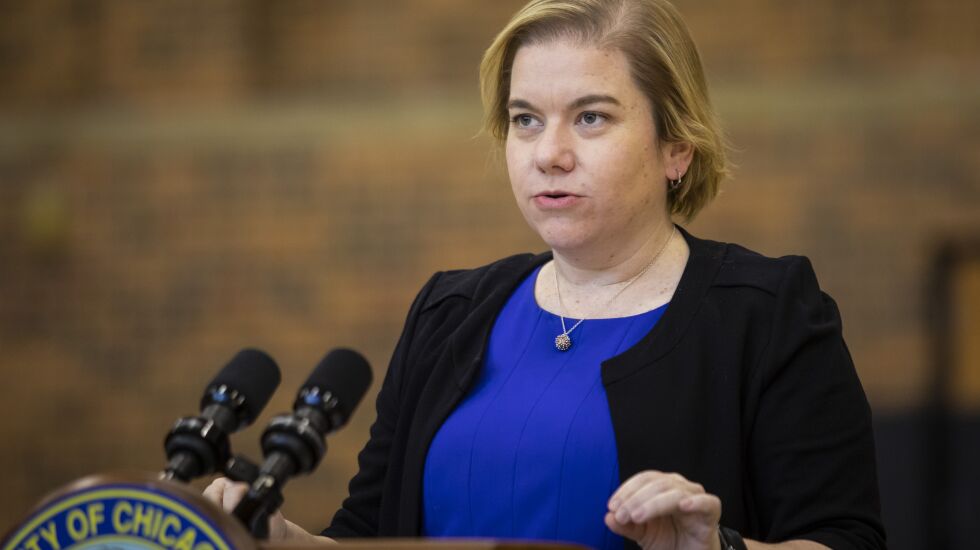
Mayor Lori Lightfoot touted her record on mental health Thursday, noting that the city is funneling money to 177 clinics or other nonprofit programs and plans counseling at some Chicago libraries and O’Hare Airport.
Lightfoot has been criticized by advocates for breaking a campaign promise to reopen half a dozen city-run clinics. Those sites were shut down by her predecessor Rahm Emanuel.
Last month, she was called out again during a forum for mayoral candidates.
The city has only five of its own centers but expects the network of affiliated clinics to offer mental health services to any resident regardless of income, insurance or immigration status.
Thanks to a recent windfall of federal funding, the city budgeted $89 million for mental health in 2022, up from $12 million in 2019, city officials said.
Last June, Lightfoot announced $3 million in new grants to expand the mental health network.
With the help of the private clinics spread across the city, collectively known as Trauma Informed Centers of Care, Chicagoans should be within a relatively short distance from a mental health resource, officials said.
“You know how broken our health care system is — it’s even harder for mental health care,” Chicago Public Health Commissioner Dr. Allison Arwady said Thursday during an event held at IMAN Health Center, 2755 W. 63rd.
Select city libraries will offer some mental health counseling, and some additional services will be offered at O’Hare.
In a recent interview with WBEZ, Public Health Deputy Commissioner Matt Richards said the city will have to figure out how to sustain mental health spending once federal funding ends. About $52 million of the city’s $89 million budget earmarked for mental health comes from pandemic relief dollars that must be spent in the next few years.
One strategy, Richards told WBEZ, was to go after more Medicaid dollars to reimburse for services provided by community clinics and other nonprofits.
Contributing: Kristen Schorsch (WBEZ)
Brett Chase’s reporting on the environment and public health is made possible by a grant from The Chicago Community Trust.







